You’ve noticed your cat sneezing more than usual and you’re wondering why. Did you know that just like humans, cats can also have allergies or catch colds? This blog will delve into the common causes of feline sneezing and provide practical treatment options to help your furry friend.
Get ready for some “ah-choo” knowledge!
Key Takeaways
- Cats can sneeze for various reasons, including allergies, irritants/allergens, infections, dental disease, foreign objects, or cancer.
- Other symptoms to watch out for include a runny nose, watery eyes, coughing, and difficulty breathing.
- If your cat is experiencing persistent sneezing or showing signs of pain or changes in appetite/behavior alongside sneezing, it’s important to seek veterinary attention.
- Treatment options may include medications (such as antibiotics), surgery (if necessary), and maintaining a clean indoor environment.
Contents
What is Cat Sneezing?
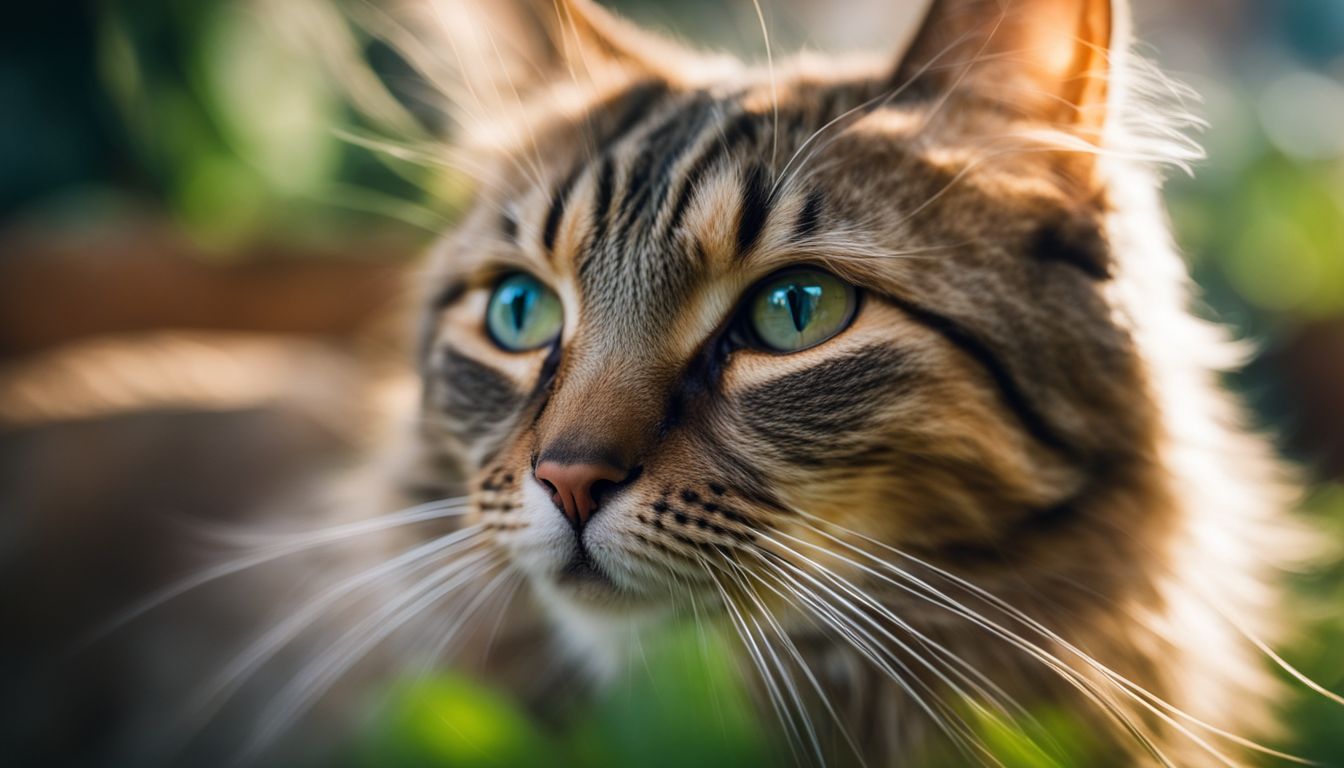
Cat sneezing is a common reflex in which air is forcefully expelled through the nose, usually due to irritation or inflammation of the nasal passages.
Definition
Cat sneezing is just like people sneezing. It is a way for cats to clear their noses. But, too much sneezing can mean your cat has a health problem. This could be from dirty air or an illness inside the body.
If a cat sneezes now and then, it’s normal. But if they do this often or every day, help from a vet may be needed.
Frequency in cats
Cats sneeze a lot like people do. It’s normal for them to have a few sneezes now and then, but not all the time. Cats can have “sneezy days“, just like we sometimes do. This is often due to small changes in their world that you might not even notice.
If your cat starts sneezing more than usual, this could be cause for concern. If they are sneezing every day or many times each day, it may mean something is wrong. It could be an issue with their nose or maybe an illness in their body.
Pay attention to how much your cat sneezes so you can tell if something changes.
6 Causes of Cat Sneezing
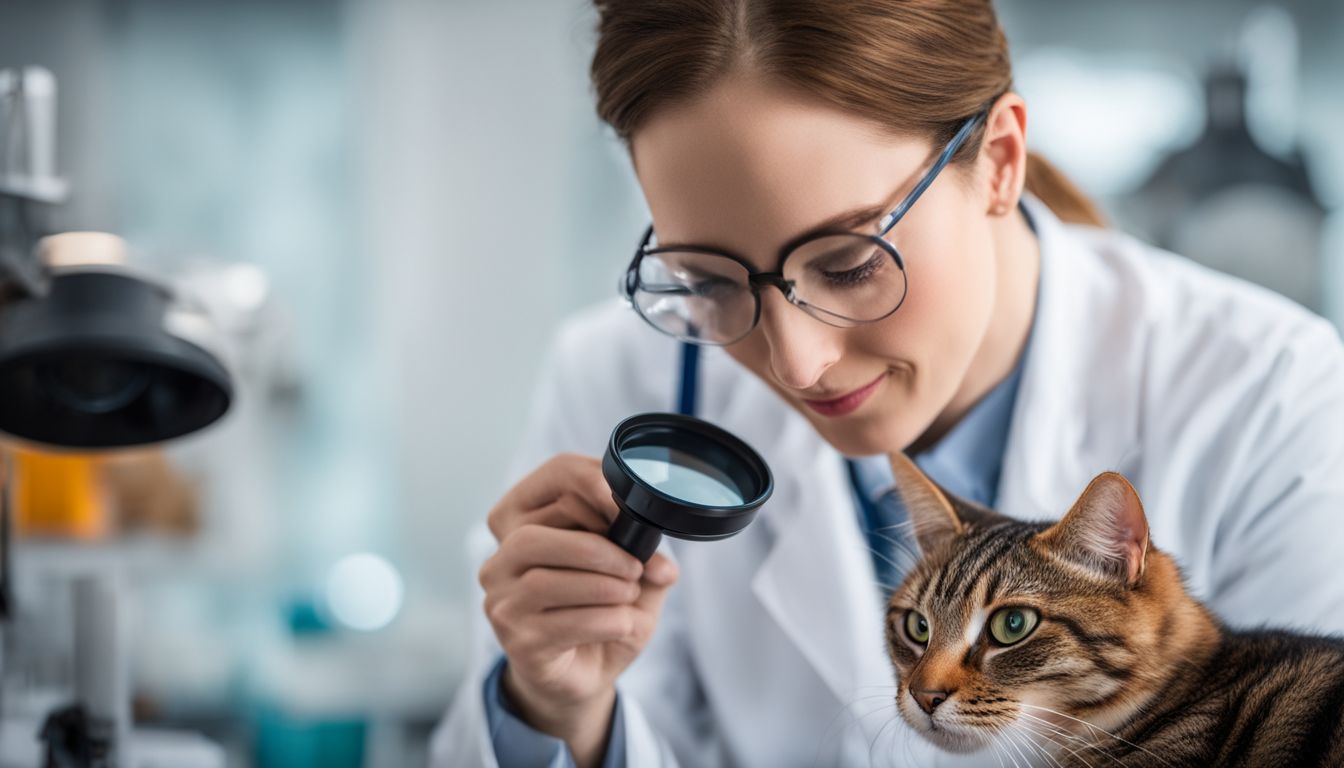
Cat sneezing can be caused by various factors such as a “nose tickle,” irritants/allergens, infections (viral, bacterial, fungal), dental disease, foreign objects, or even cancer.
“Nose tickle”
Your cat’s nose may also feel a tickle. Tiny things like dust or smoke make the nose itch. The cat will sneeze to clear out its nose. Even strong smells, like perfume, can cause this.
It is normal for cats to sneeze now and then. But too much sneezing is not good. You should take your cat to the vet if it happens often.
Irritants/allergens
Irritants and allergens can also cause your cat to sneeze. These can include things like dust, pollen, mold spores, cigarette smoke, or strong odors. Cats with allergies may experience symptoms such as sneezing, itching, watery eyes, and even skin problems like rashes or hair loss.
It’s important to identify and remove the source of the irritation if possible. Keeping your cat’s environment clean and free from potential irritants can help prevent sneezing episodes.
If you suspect that your cat has allergies or is sensitive to certain substances, it is best to consult with a veterinarian for proper diagnosis and treatment options.
Infections caused by viruses, bacteria, or fungi can also make cats sneeze. These infections affect the upper respiratory tract and can lead to symptoms like sneezing, nasal discharge, and coughing in your cat.
Some common viral infections include feline herpesvirus and cat flu. Bacterial infections can be caused by organisms like Bordetella and Chlamydia. Fungal infections are less common but can occur in cats with weakened immune systems.
If you notice persistent sneezing along with other symptoms, it’s important to have your cat seen by a vet for proper diagnosis and treatment.
Dental disease
Dental disease can also be a cause of sneezing in cats. When a cat has dental issues, such as tooth decay or gum disease, it can lead to inflammation and infection in the mouth. This infection can sometimes spread to the sinuses and nasal passages, causing sneezing.
So, if your cat is sneezing frequently and you notice that they have bad breath or difficulty eating, dental disease could be the culprit. It’s important to take your cat to the vet for a dental check-up if you suspect dental problems as the cause of their sneezing.
Foreign object
A foreign object stuck in your cat’s nose can also cause sneezing. It could be something like a grass seed, dust particle, or even a small toy. If you suspect this is the cause of your cat’s sneezing, it’s important to take them to the vet as soon as possible.
The vet can examine your cat and remove the foreign object safely. Leaving it untreated can lead to further complications and discomfort for your furry friend.
Cancer
Cancer is another possible cause of cat sneezing. Just like in humans, cats can develop cancerous growths in their nasal passages. These tumors can cause irritation and inflammation, leading to persistent sneezing.
If your cat has been sneezing for a long time and other treatments have not helped, it’s important to consider the possibility of cancer. Your veterinarian will be able to perform tests and recommend appropriate treatment options if cancer is suspected.
Other Symptoms to Look Out For

Some other symptoms to watch for include a runny nose, watery eyes, coughing, and difficulty breathing.
Runny nose
If your cat has a runny nose, it could be a sign of a respiratory infection or an upper respiratory condition. This can happen due to viral or bacterial infections, allergies, dental disease, or even foreign objects stuck in the nose.
A runny nose is often accompanied by sneezing and watery eyes. If you notice these symptoms persisting or your cat experiencing difficulty breathing, it’s important to see a vet. Treatment options may include medications like antibiotics or surgery if necessary.
To prevent future episodes, make sure your cat receives regular vaccinations and stays in an indoor environment with good hygiene practices.
Watery eyes
Cat sneezing can sometimes be accompanied by watery eyes. When your cat sneezes, it may also experience excessive tearing or discharge from its eyes. This could be a sign of an upper respiratory infection, such as feline herpesvirus or cat flu.
It could also indicate sinusitis or rhinitis in cats. These conditions can cause inflammation and irritation in the nasal passages and sinuses, leading to watery eyes. If your cat has persistent sneezing along with watery eyes, it’s important to consult a vet for proper diagnosis and treatment options.
Coughing
Coughing is another symptom to look out for if your cat is sneezing. It can be a sign of an underlying respiratory issue or infection. If your cat is coughing persistently, it’s important to see a vet for proper diagnosis and treatment.
They may prescribe medications such as cough suppressants or antibiotics, depending on the cause of the cough. Remember to follow their instructions carefully and provide your cat with plenty of rest and fluids during their recovery.
Difficulty breathing
Difficulty breathing in cats is a serious symptom that may indicate a more severe underlying condition. If your cat is experiencing difficulty breathing, it could be due to an upper respiratory infection, such as feline herpesvirus or sinusitis.
It could also be caused by chronic upper respiratory conditions like rhinitis or neoplasia tumors in the nasal passage. In some cases, dental disease or foreign objects lodged in the nose can also lead to difficulty breathing.
If your cat is having trouble breathing, it’s important to seek veterinary care right away for proper diagnosis and treatment options.
When to See a Vet if your cat is sneezing
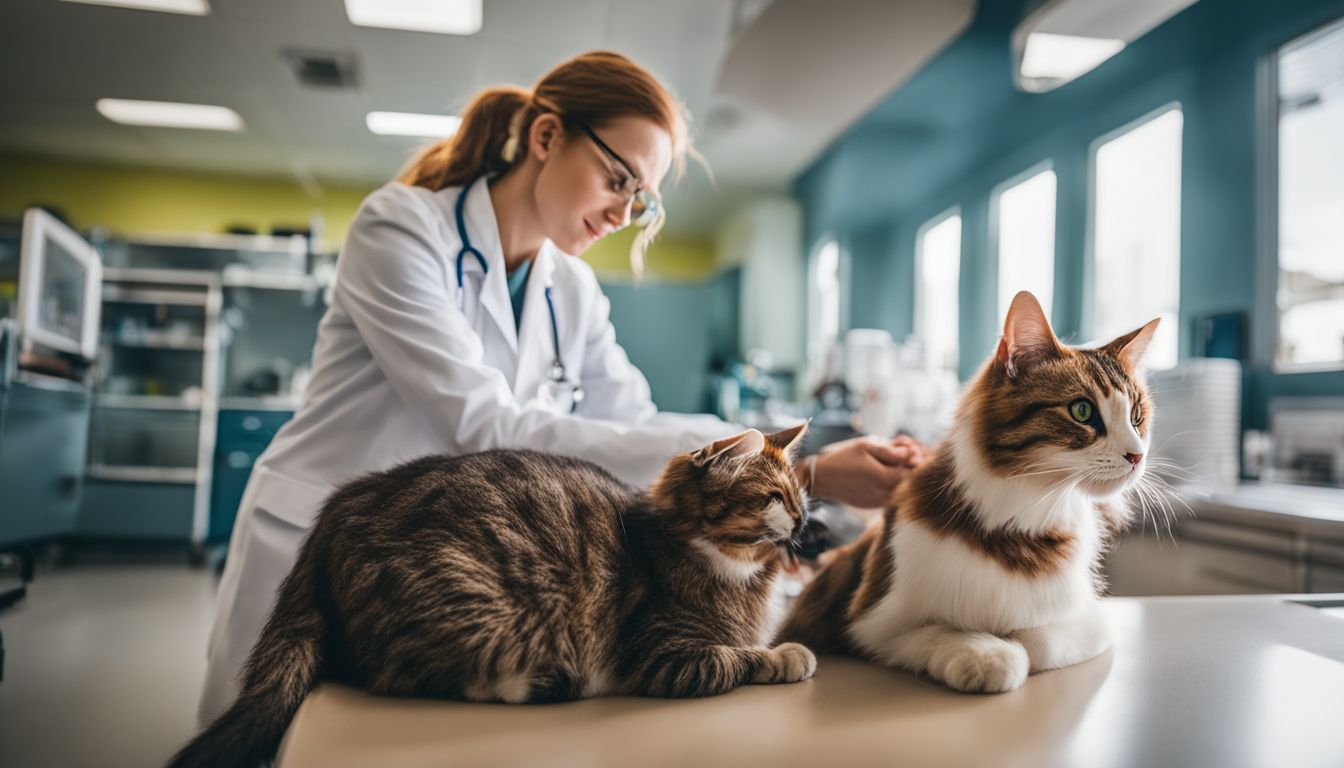
If your cat is experiencing persistent sneezing, a change in appetite or behavior, or shows signs of pain, it is important to seek veterinary attention.
Persistent sneezing
If your cat has persistent sneezing, it could be a sign of a more serious issue. It’s important to pay attention to this symptom and monitor if it continues for an extended period of time.
Persistent sneezing in cats can indicate chronic upper respiratory conditions, such as viral or bacterial infections. Additionally, foreign objects lodged in the nasal passages or even tumors could be causing the persistent sneezing.
If you notice your cat continuously sneezing without relief, it’s recommended to consult with a vet for further evaluation and appropriate treatment options.
Change in appetite or behavior
If you notice changes in your cat’s appetite or behavior along with sneezing, it could be a sign that something more serious is going on. Cats are usually good eaters and have consistent habits, so any sudden change should be taken seriously.
They may eat less or refuse to eat altogether, lose weight, become lethargic, or show signs of discomfort. Changes in behavior can include being more withdrawn, hiding more often, or showing signs of pain when touched.
These changes indicate that it’s time to take your cat to the vet for further evaluation and appropriate treatment.
Signs of pain
If your cat is sneezing and showing signs of pain, it’s crucial to seek veterinary care right away. Cats may exhibit different signs of pain, such as vocalizing or crying out, restlessness, hiding, decreased appetite, or changes in behavior.
They may also have difficulty breathing or show sensitivity when touched around their face or nose. It’s essential not to ignore these signs as they could indicate a more severe underlying condition that needs attention from a veterinarian.
Seeking prompt medical care will ensure proper diagnosis and treatment to alleviate your cat’s pain and discomfort.
Treatment Options
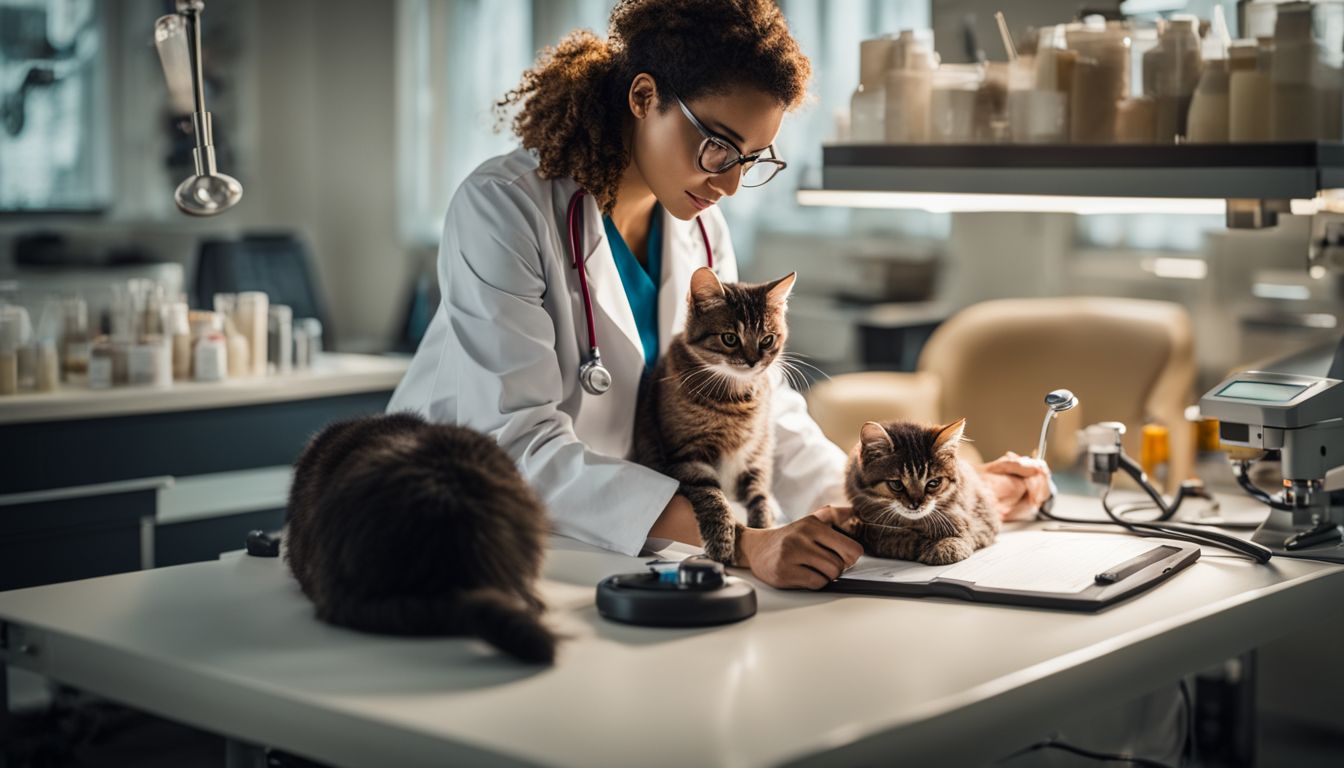
Treatment options for a cat sneezing may include medications, antibiotics, and surgery.
Medications
When it comes to treating cat sneezing, medications can be an effective option. Your vet may prescribe antibiotics if there is a bacterial infection present. These medications help fight the bacteria and alleviate the symptoms.
In some cases, surgery may be necessary to remove foreign objects or tumors that are causing the sneezing. Remember to follow your vet’s instructions carefully when administering medication to your cat and always finish the full course of treatment for best results.
Antibiotics
Antibiotics are medications that can be used to treat bacterial infections in cats. If your cat is sneezing due to a bacterial infection, the vet may prescribe antibiotics to help fight off the bacteria and reduce inflammation.
It’s important to follow the vet’s instructions and give the antibiotics as directed, even if your cat starts feeling better. This will ensure that all of the bacteria are eliminated and prevent a relapse of the infection.
Remember to never give your cat any medication without consulting with a veterinarian first, as certain antibiotics can be harmful or ineffective for cats.
Surgery
If your cat is experiencing chronic sneezing and other treatments haven’t been successful, your veterinarian may recommend surgery as an option. Surgery can be used to remove foreign objects that are causing irritation or blockage in the nasal passages.
It can also be done to treat cancerous growths or correct structural abnormalities in the nose or sinuses. The specific type of surgery will depend on the underlying cause of your cat’s sneezing and will be determined by your vet.
They will explain the procedure and any potential risks involved, so you can make an informed decision about whether surgery is the right choice for your furry friend.
Preventative Measures
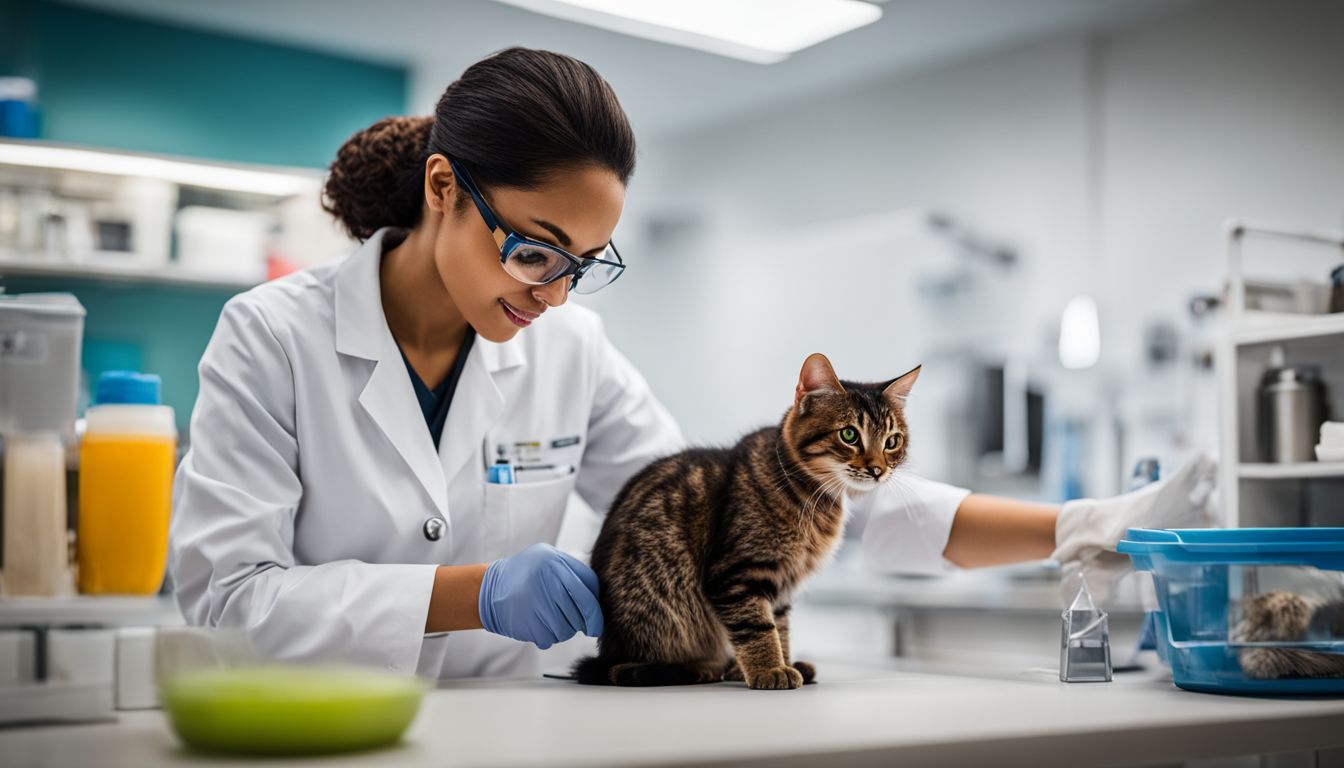
To prevent cat sneezing, be sure to provide regular vaccinations, maintain an indoor environment, and practice proper hygiene. Read on for more tips on keeping your furry friend healthy and happy.
Regular vaccinations
Regular vaccinations are important for keeping your cat healthy and preventing various diseases. Vaccinations can protect your cat against common viruses, such as feline herpesvirus and feline calicivirus, which can cause respiratory infections in cats.
They also help prevent serious illnesses like rabies and feline leukemia. By staying up to date on vaccinations, you can provide the best protection for your cat and ensure a long and happy life.
Talk to your vet about the recommended vaccination schedule for your cat.
Indoor environment
Creating a safe and healthy indoor environment is crucial for keeping your cat sneeze-free. Start by making sure that the air quality in your home is clean and free from irritants.
Vacuum regularly, use air purifiers, and avoid smoking around your cat. Keep their litter box clean to prevent bacteria buildup, and provide plenty of fresh water to keep them hydrated.
Additionally, maintain a consistent temperature in your home to avoid temperature fluctuations that can trigger sneezing. By taking these measures, you can help create an ideal indoor environment for your cat’s respiratory health.
Proper hygiene
To keep your cat healthy and reduce the risk of sneezing, it’s important to maintain proper hygiene. This includes cleaning their litter box regularly to prevent the buildup of bacteria and viruses.
Wash your hands thoroughly after handling your cat or cleaning their litter box. Also, make sure to wash their food and water bowls frequently to avoid any contamination. Regularly groom your cat by brushing their fur to remove any allergens or irritants that may be causing them to sneeze.
Additionally, keeping your home clean and free from dust and other particles can help minimize potential triggers for sneezing.in cats.
Conclusion
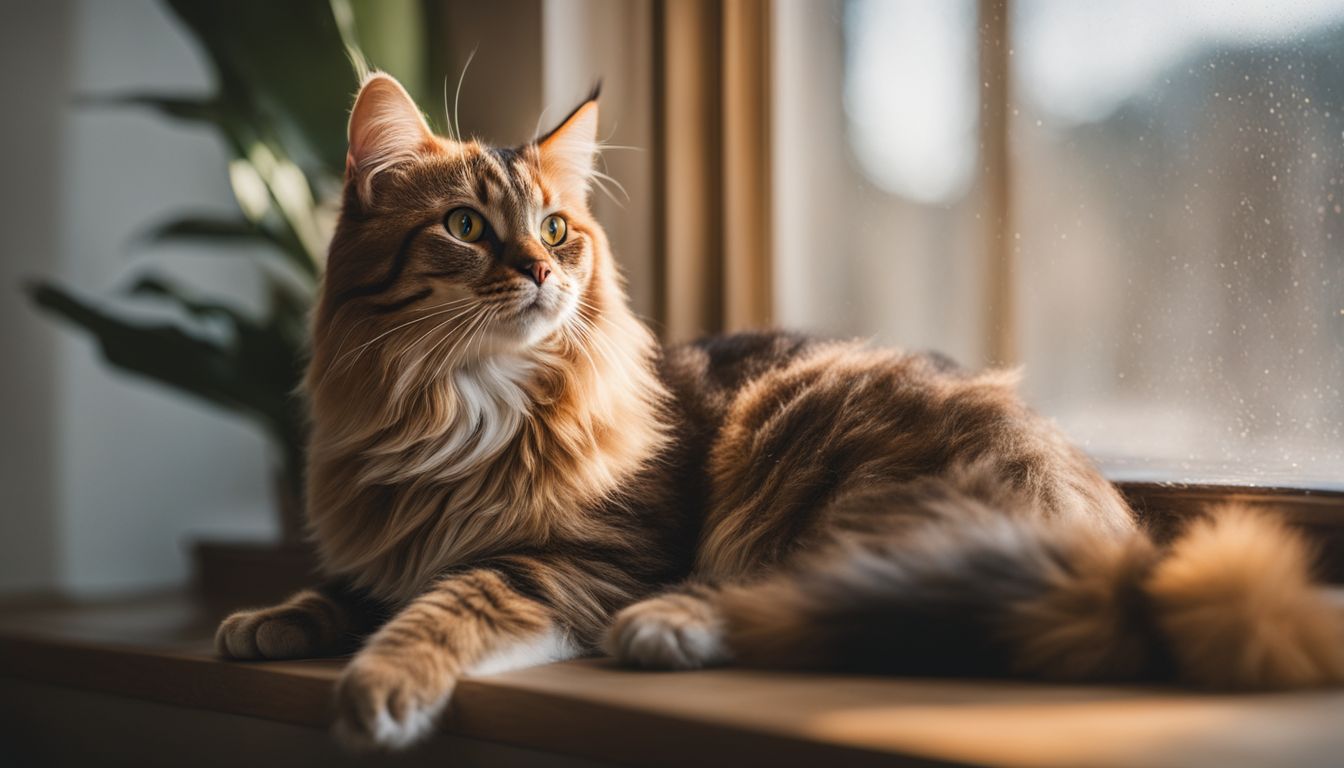
If your cat is sneezing, it could be due to various reasons like allergies, infections, or even dental issues. It’s important to keep an eye out for other symptoms like a runny nose or watery eyes.
If the sneezing persists or if you notice any changes in your cat’s behavior or appetite, it’s best to consult a veterinarian. They can provide the right treatment options and give advice on preventative measures such as regular vaccinations and maintaining a clean indoor environment.
FAQs
1. Why is my cat sneezing?
Cats can sneeze due to various reasons such as allergies, respiratory infections, foreign objects in the nose, or irritants like dust or smoke.
2. Is cat sneezing a cause for concern?
While occasional sneezing is normal for cats, frequent or persistent sneezing may indicate an underlying issue and should be evaluated by a veterinarian.
3. How can I help relieve my cat’s sneezing?
You can help relieve your cat’s sneezing by keeping their environment clean and free from irritants, ensuring proper ventilation, and using a humidifier to add moisture to the air.
4. When should I take my cat to the vet for sneezing?
It is recommended to take your cat to the vet if they exhibit other symptoms along with sneezing, such as nasal discharge, coughing, difficulty breathing,
or loss of appetite.
5. What are some treatment options for a cat with frequent sneezing?
The appropriate treatment for your cat will depend on the underlying cause of their frequent sneezes and will be determined by a veterinarian after examination.
Treatment options may include medications for allergies or infections,
as well as supportive care measures like steam therapy or nasal saline drops.

